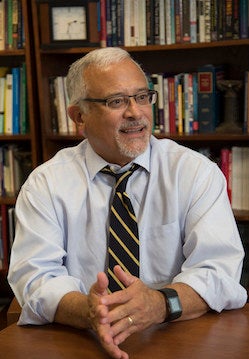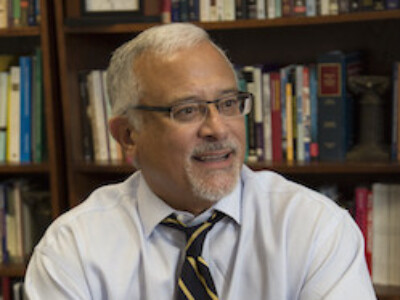
Listen to the audio recordings of children crying in the holding cells of detention centers in South Texas. You hear the mournful wails of children calling for “Mami” or “Papi.” These are unlike the cries of a child that is hungry or needs a diaper change or just got a boo-boo. The sobs of the children are the sounds of a child who has sustained a major loss, asking “Where is my Mami and my Papi? Will I ever see them again?” fearing that they have lost them forever.
As a behavioral scientist, I know the pain I hear from these children is causing serious damage that has been wrought on these vulnerable lives. The need for the human bond is profound for infants, toddlers and older children. It is the attachment that helps in the development of positive social interaction, trust of others and the regulation of emotions and behaviors.
Even though President Donald Trump signed an order to reunite children with their parents “ASAP,” the damage has been done. Because it was government-sponsored child abuse, our government has to make sure that the services these children will need to repair them are available. It will take social work, psychiatric, psychological and counseling services to start and see through the repairs. Teachers will have to adapt their lessons to take into account what these children have experienced. The refugee children will need emotional, physical, educational, spiritual and, yes, civic repair. We need to help them learn to trust again in our government.
Under stress, the body naturally braces itself by emitting hormones and taking other physiological measures to protect the person. In the short term, it might not be very damaging, though still hurtful. But when the stress is unremitting and complex, the body begins to break down and the young brain is not allowed to develop normally. Exhausted, the brain’s natural growth in cognition, judgment, decision-making, problem-solving and interpreting of social cues is harshly truncated. When the stress is traumatic, such as when that natural bond with the parent is suddenly severed deceitfully, the damage is compounded. The wounds will last a lifetime.
No American that I know wants to harm children intentionally. Even many of those who disagree on how we should handle refugee families at the border or how aggressive we should be in enforcing our immigration laws agree that children should be protected and not separated from parents. Research shows that detention of children, even for a brief period of time, does lasting harm to their psychological and physical conditions.
The Department of Homeland Security must work closely with the Department of Health and Human Services, especially its Office of Refugee Resettlement, to make sure services to help these children are funded.
It should not be left to the states to channel these funds. Locally, politicians tend to reward agencies irrespective of their capacity to provide sound care. Funds should not go to contractors who have held these children in prisons. Instead, the government must work through reputable national organizations such as Children’s Defense Fund, Save the Children, Ford Foundation and Annie E. Casey Foundation to work directly with ethical, responsible social services agencies on the ground who have proven their worth, their trust. Only non-profit social service agencies that have not supported “zero tolerance” government actions can be trusted by refugee families.
The mournful cries of the children in South Texas and everywhere they are detained will haunt us as a nation, just as our treatment of Native Americans, slaves and U.S. citizens of Japanese heritage has. We must listen to the sounds of trauma in the cries of these children and know that we as a nation, as a government, have a responsibility for repairing the harm that has been done. When we hear the refugee children who have lived through this national nightmare cry out “Mami!” or “Papi!” with joy and pride at the creation with Legos or setting the dining room table or calling parents to read a nighttime story or say their evening prayers, then we will know our nation has repaired them and itself.
Luis H. Zayas is the dean of the Steve Hicks School of Social Work and the Robert Lee Sutherland Chair in Mental Health and Social Policy at The University of Texas at Austin. Follow him on Twitter: @lhzayas. This opinion piece was produced for Texas Perspectives and represents the views of the author, not of The University of Texas at Austin or the Steve Hicks School of Social Work. A version of it appeared in USA Today.


